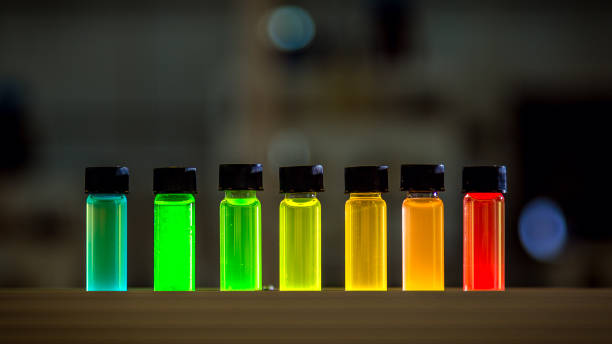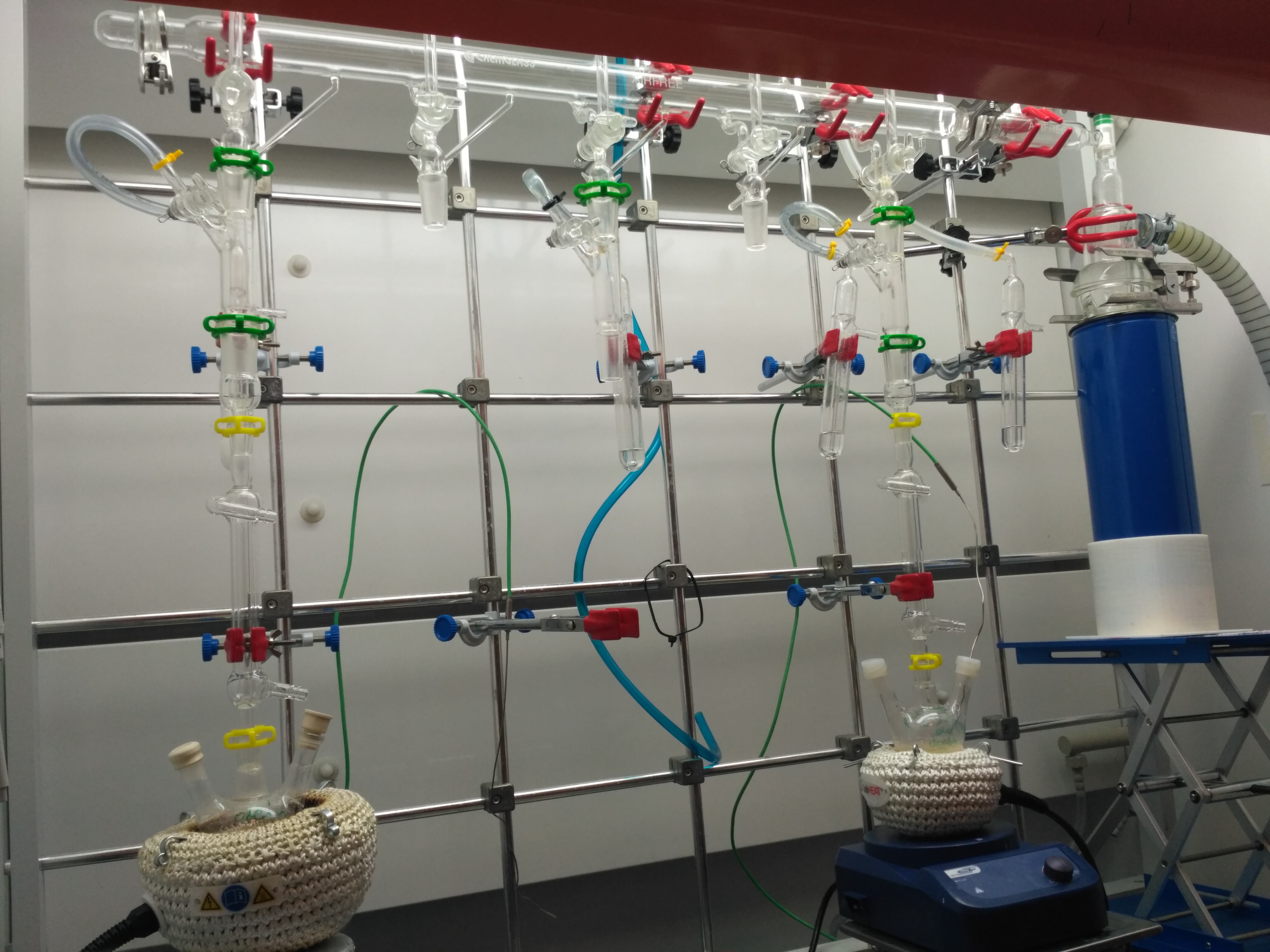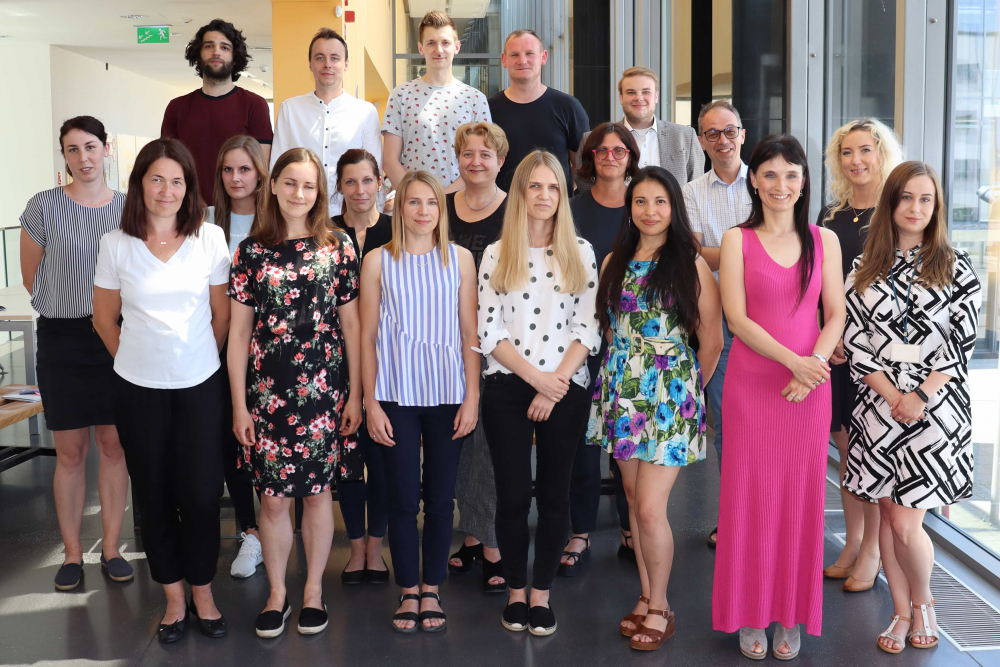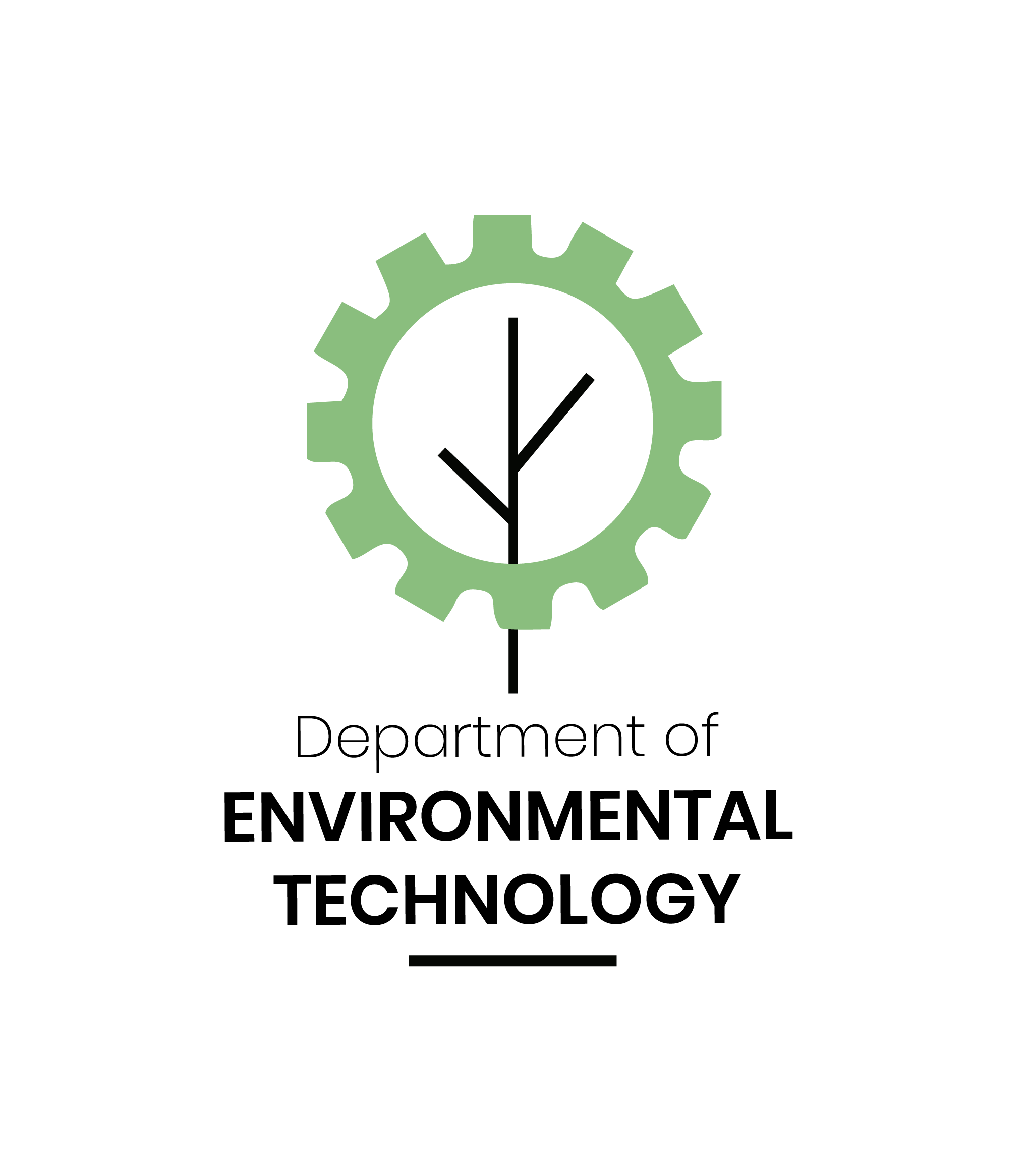About us
The Department of Environmental Technology was established in December 2013 at Faculty of Chemistry University of Gdansk. The research and teaching work of the Department is headed by prof. Dr hab. Eng. Adriana Zaleska-Medynska. There are three research groups at the Department of Environmental Technology - the Photocatalysis Group (head: prof. Adriana Zaleska-Medynska), the Materials and Catalytic Processes Group (head: Dr hab. Dagmara Jacewicz, prof. UG) and the Biochemical Analysis and Nanodiagnostics Group (head: prof. Dr hab. Adam Lesner). In all teams of the Department of Environmental Technologies it is possible to carry out diploma theses (bachelor's, engineering and master's). The results of scientific activity of the employees of the Department of Environmental Technology are articles published in journals from the JCR list, books (including "Metal Oxide-Based Photocatalysis: Fundamentals and Prospects for Application") and patents on new functional materials or markers used in the diagnosis of inflammation and tumors. Scientific and R&D works are carried out thanks to grants obtained, among others, from the Scientific Center for Science, Research and Development Center, or the Provincial Fund for Environmental Protection and Water Management. The didactic activity of the Department of Environmental Technology also includes the organization of study visits to industrial plants related to the chemical industry (Polpharma, Amber Bielkówko Brewery, Water Treatment Station in Straszyn and others).
 The conducted studies focuses on the development of methods for obtaining and advanced characterization of new materials (nanoparticles and nanocomposites) with photocatalytic properties. Nanomaterials with photocatalytic properties can be used to produce new photocatalytic and bactericidal coatings activated with UV-vis radiation. Characterization of new materials also includes the assessment of their activity in model reactions of water and air purification (removal of model organic matter and removal of model microorganisms from the air) and evaluation of the activity of selected photocatalytic layers in subsequent reaction cycles. The radiation sources used include: LED diodes (emitting radiation with a length of 375 and 415 nm), which allows for a significant reduction in electricity consumption.
The conducted studies focuses on the development of methods for obtaining and advanced characterization of new materials (nanoparticles and nanocomposites) with photocatalytic properties. Nanomaterials with photocatalytic properties can be used to produce new photocatalytic and bactericidal coatings activated with UV-vis radiation. Characterization of new materials also includes the assessment of their activity in model reactions of water and air purification (removal of model organic matter and removal of model microorganisms from the air) and evaluation of the activity of selected photocatalytic layers in subsequent reaction cycles. The radiation sources used include: LED diodes (emitting radiation with a length of 375 and 415 nm), which allows for a significant reduction in electricity consumption.
 Additionally, our studies concerns on the hydrogenolysis of chlorinated organic compounds as a method of neutralizing PCB waste (polychlorinated biphenyls) and other chlorinated, fluorinated organic compounds. The influence of the disorchment conditions, such as: temperature, base concentration, type of catalyst, and agitation rate, on the reaction efficiency is investigated. The susceptibility to the deterioration of various structures of chlorinated aromatic compounds is investigated, including: the influence of the position and type of the substituent on the aromatic ring containing chlorine, the number of chlorine atoms in the molecule being degraded. The stability of the Pd / C catalyst during the hydrogenolysis process is investigated.
Additionally, our studies concerns on the hydrogenolysis of chlorinated organic compounds as a method of neutralizing PCB waste (polychlorinated biphenyls) and other chlorinated, fluorinated organic compounds. The influence of the disorchment conditions, such as: temperature, base concentration, type of catalyst, and agitation rate, on the reaction efficiency is investigated. The susceptibility to the deterioration of various structures of chlorinated aromatic compounds is investigated, including: the influence of the position and type of the substituent on the aromatic ring containing chlorine, the number of chlorine atoms in the molecule being degraded. The stability of the Pd / C catalyst during the hydrogenolysis process is investigated.
In the Materials and Catalytic Processes Group studies include the synthesis and physicochemical characteristics of new ones highly active "green" materials as catalysts for olefin oligomerization and polymerization, synthesis of carrier precursors / catalysts in an aqueous medium, tests of acid-base stability and properties of catalysts in solutions and tests of reaction kinetics with the participation of newly obtained "green" materials by the method stopped-flow.
Research topics within the Biochemical Analysis and Nanodiagnostics Group studio include the study of substrate specificity of proteolytic enzymes using combinatorial chemistry methods. The main objects of research are proteinases isolated from human blood cells - neutrophils (including the newly discovered NSP4), and those involved in the wound healing process from the kallikrein family. By chemical synthesis, we obtain efficient and selective peptides containing fluorescent tags in the sequence. As part of cooperation with medical centers, we determine the level of activity of these enzymes in patients, which may contribute to an appropriate diagnosis. The wound healing process is another research topic conducted by the members of the Laboratory. We design and synthesize peptides whose sequence consists of a peptide with antimicrobial properties and a proliferation stimulating peptide. We test the obtained conjugates on a human skin model and determine their ability to inhibit bacterial growth.
Biochemical Analysis and Nanodiagnostics Group studio include the study of substrate specificity of proteolytic enzymes using combinatorial chemistry methods. The main objects of research are proteinases isolated from human blood cells - neutrophils (including the newly discovered NSP4), and those involved in the wound healing process from the kallikrein family. By chemical synthesis, we obtain efficient and selective peptides containing fluorescent tags in the sequence. As part of cooperation with medical centers, we determine the level of activity of these enzymes in patients, which may contribute to an appropriate diagnosis. The wound healing process is another research topic conducted by the members of the Laboratory. We design and synthesize peptides whose sequence consists of a peptide with antimicrobial properties and a proliferation stimulating peptide. We test the obtained conjugates on a human skin model and determine their ability to inhibit bacterial growth.

